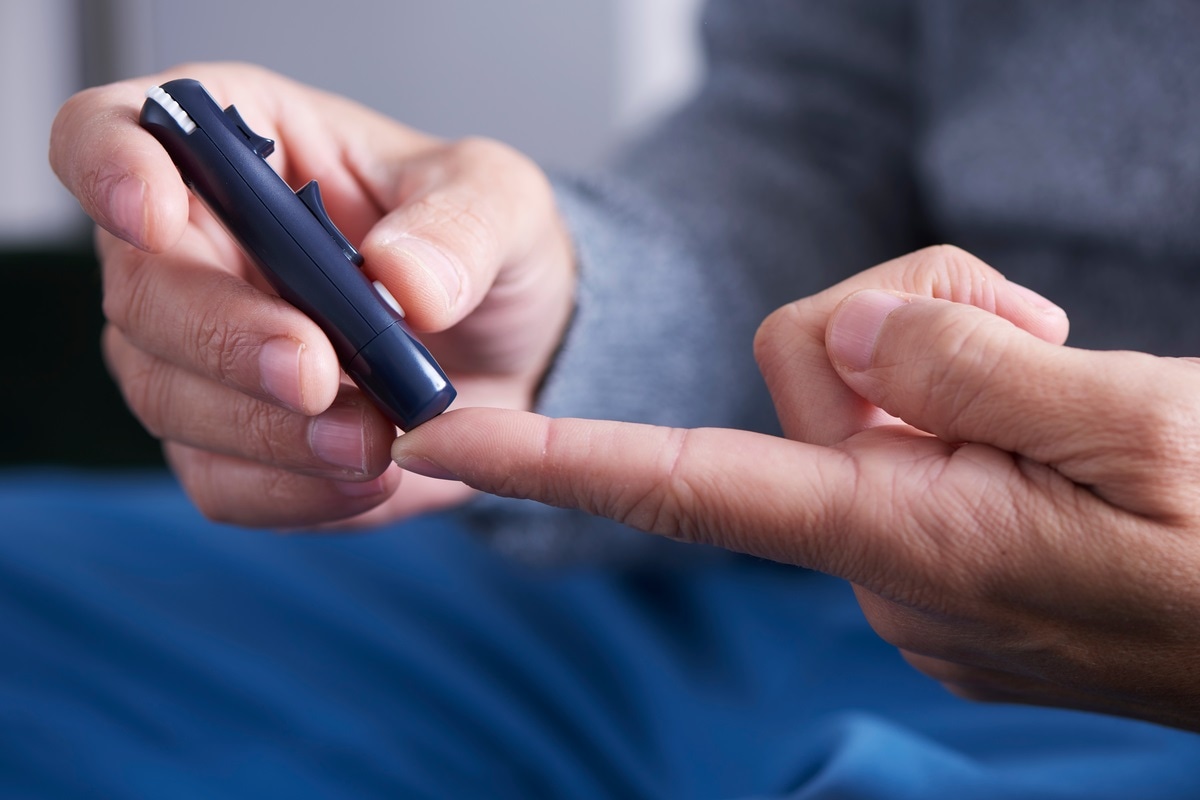Can fingerprick blood tests help evaluate antibody response and longevity against SARS-CoV-2 post-vaccination?

The coronavirus disease 2019 (COVID-19), caused by the severe acute respiratory syndrome coronavirus 2 (SARS-CoV-2), continues to spread globally. To date, over 142.1 million cases have been confirmed worldwide.
Vaccination rollouts have commenced in most countries in an attempt to arrest the spread of SARS-CoV-2. Antibody testing can help determine the magnitude of the pandemic and, at the same time, can be used for vaccine efficacy evaluation.
Studies have demonstrated that neutralizing antibody responses induced by messenger RNA (mRNA) vaccines such as Pfizer-BioNTech and Moderna correlate strongly with antibody measures by immunoassays such as enzyme-linked immunosorbent assay (ELISA).
To monitor antibody level duration of vaccine-induced immune responses, a team of researchers in the U.S. – at Diacarta, University of California and VA Healthcare System, and the Franciscan University of Steubenville – evaluated the feasibility of using a single drop of fingerstick blood collected with flocked swabs for quantitative antibody response evaluation after COVID-19 vaccination.

Study background
Antibodies that bind to the viral spike protein can block viral entry into cells. They also play a critical role in the protective immune responses to SARS-CoV-2 infection.
To help curb the spread of SARS-CoV-2, safe and effective vaccines were rapidly developed and distributed to millions of people across the globe. In the United States, among the Food and Drug Administration (FDA)-approved COVID-19 vaccines are the Pfizer-BioNTech (BNT162b1) and Moderna (mRNA-1273), which are both lipid nanoparticle-encapsulated mRNA vaccines, and the Jassen vaccine (Johnson & Johnson), which is an adenovirus (AD26) vector-based vaccine.
Past evidence showed that a majority of seronegative participants who received the first dose of vaccination developed variable and relatively low SARS-CoV-2 immunoglobulin G (IgG) responses within 9 and 12 days.
People with pre-existing immunity who received a single dose of mRNA vaccine showed a rapid immune response 10 to 45 times as high antibody titers, compared to those without pre-existing immunity.
In studies conducted on AstraZeneca (AZD1222) vaccine, researchers reported that Anti-spike IgG responses increased by the 28th day and were boosted further after the second dose.
Hence, determining the efficacy and presence of neutralizing antibodies in vaccinated people is important. Previous studies have also suggested that a standardized ELISA-based antibody test might be adequate to predict protection after receiving a vaccine.
The study
To monitor the antibody level duration of vaccine-induced immune responses in vaccinated people, cost-effective and easy-to-use antibody testing methods are needed.
In the study, which appeared on the pre-print medRxiv* server, the researchers evaluated the efficacy of using a single drop fingerstick blood sample collected with flocked swabs for a high-throughput and quantitative anti-SARS-CoV-2 S1IgG antibody immunoassay.
To arrive at the study findings, the team recruited 50 participants who donated fingerstick blood samples before and after receiving the Moderna mRNA vaccine.
The team demonstrated that at-home fingerstick blood collected on a flocked dry swab is comparable to the fingerstick blood collected into EDTA tube for anti-SARS-CoV-2 Spike IgG detection after receiving full vaccine protection.
Further, the samples in dried swabs have a higher correlation with venous plasma specimen for the evolution of anti-SARS-CV-2 S1 IgG level. The method is more convenient for users since there is no need for them to go to a healthcare facility or a diagnostic clinic.
The method can be used to monitor the antibody response status over time after people have received their full mRNA vaccine, including the primer and booster dose, against COVID-19.
Of all the participants in the study, no anti-SARS-CoV-2 S1 IgG antibodies were detected before immunization and on the 7th day post-vaccination.
On the 14th day after the first dose, however, the team detected significant amounts of anti-SARS-CoV-2 S1 IgG antibodies in all the participants. After the third week from the first dose, the average antibody concentration increased to 44.9 ug/mL. Lastly, the fingerstick blood-dried swab remained stable for four days.
However, the team detected no anti-SARS-CoV-2 nucleocapsid (N) protein IgG antibody in the samples used in the study. This means that the method can only be used for mRNA vaccine-induced antibodies.
The new method does not require the drawing of blood, which is more convenient. The method can be implemented easily for large-scale antibody testing in people who had their vaccines.
*Important Notice
medRxiv publishes preliminary scientific reports that are not peer-reviewed and, therefore, should not be regarded as conclusive, guide clinical practice/health-related behavior, or treated as established information.
- COVID-19 Dashboard by the Center for Systems Science and Engineering (CSSE) at Johns Hopkins University (JHU) – https://gisanddata.maps.arcgis.com/apps/opsdashboard/index.html#/bda7594740fd40299423467b48e9ecf6
- Du, J., Zhang, D., May, H., Longinova, Y., Chu, E., et al. (2021). A Single Drop of Fingerstick Blood for Quantitative Antibody Response Evaluation After SARS-CoV-2 Vaccination. medRxiv. doi: https://doi.org/10.1101/2021.04.11.21255278, https://www.medrxiv.org/content/10.1101/2021.04.11.21255278v1
Posted in: Medical Science News | Medical Research News | Disease/Infection News | Healthcare News
Tags: Adenovirus, Antibodies, Antibody, Assay, Blood, Coronavirus, Coronavirus Disease COVID-19, Diagnostic, Efficacy, Enzyme, Evolution, Healthcare, Immune Response, Immunization, Immunoassay, Immunoassays, Immunoglobulin, Nanoparticle, Pandemic, Protein, Respiratory, RNA, SARS, SARS-CoV-2, Severe Acute Respiratory, Severe Acute Respiratory Syndrome, Spike Protein, Syndrome, Vaccine

Written by
Angela Betsaida B. Laguipo
Angela is a nurse by profession and a writer by heart. She graduated with honors (Cum Laude) for her Bachelor of Nursing degree at the University of Baguio, Philippines. She is currently completing her Master's Degree where she specialized in Maternal and Child Nursing and worked as a clinical instructor and educator in the School of Nursing at the University of Baguio.
Source: Read Full Article